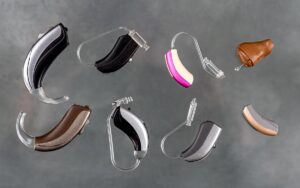Learning to cope with tinnitus is often how you manage it. To help tune it out you leave the television on. And loud music at bars is making your tinnitus worse so you avoid going dancing. You check in with specialists frequently to try out new treatments and new techniques. Eventually, your tinnitus just becomes something you work into your everyday life.
Mostly, that’s because there’s no cure for tinnitus. But that might be changing. New research published in PLOS Biology seems to offer hope that we might be getting closer to a permanent and reliable cure for tinnitus.
Tinnitus Causes
You’re dealing with tinnitus if you hear a buzzing or ringing (or occasionally other sounds) with no objective cause. A condition that affects over 50 million people in the United States alone, it’s remarkably common for people to suffer from tinnitus.
It’s also a symptom, generally speaking, and not a cause unto itself. Put simply, something causes tinnitus – tinnitus symptoms are the result of some underlying concern. These underlying causes can be hard to diagnose and that’s one reason why a cure is elusive. There are many possible causes for tinnitus symptoms.
Even the relationship between tinnitus and hearing loss is uncertain even though most people link the two. There’s a relationship, certainly, but not all people who have tinnitus also have loss of hearing (and vice versa).
A New Culprit: Inflammation
The new research published in PLOS Biology detailed a study lead by Dr. Shaowen Bao, an associate professor of physiology at the Arizona College of Medicine in Tuscon. Dr. Bao did experiments on mice who had tinnitus triggered by noise-induced hearing loss. And a new culprit for tinnitus was revealed by her and her team: inflammation.
According to the scans and tests carried out on these mice, inflammation was seen around the parts of the brain responsible for listening. As inflammation is the body’s response to injury, this finding does indicate that noise-induced hearing loss might be creating some damage we don’t completely understand yet.
But a new type of treatment is also made possible by these findings. Because handling inflammation is something we know how to do (generally). When the mice were given medication that inhibited the observed inflammation response, the symptoms of tinnitus vanished. Or at the very least there were no longer observable symptoms of tinnitus.
Does This Mean There’s a Pill for Tinnitus?
If you take a patient enough viewpoint, you can definitely look at this research and see how, one day, there could definitely be a pill for tinnitus. Imagine if keeping your tinnitus under control was a routine matter of taking your morning medicine and you could escape from all of the coping mechanisms you need to do now.
That’s certainly the objective, but there are numerous significant hurdles in the way:
- These experiments were performed first on mice. This approach isn’t approved yet for people and it might be quite some time before that happens.
- Not everybody’s tinnitus will be caused the same way; it’s really difficult to know (for now) whether all or even most tinnitus is associated with inflammation of some kind.
- We still have to establish whether any new method is safe; these inflammation blocking medications might have harmful side effects that could take some time to identify.
So, a pill to treat tinnitus might be pretty far off. But at least now it’s feasible. If you suffer from tinnitus now, that signifies a substantial increase in hope. And, obviously, this strategy in managing tinnitus is not the only one currently being studied. That cure gets closer and closer with every bit of practical knowledge and every new finding.
Ca Anything be Done Now?
You may have hope for an eventual tinnitus pill but that isn’t going to give you any relief for your constant buzzing or ringing right now. Current treatments might not “cure” your tinnitus but they do produce real results.
Some strategies include noise-cancellation devices or cognitive therapies manufactured to help you ignore the sounds linked to your tinnitus. A cure could be several years away, but that doesn’t mean you have to deal with tinnitus by yourself or unassisted. Spending less time stressing about the buzzing or ringing in your ears and more time doing what you love is the reason why you should let us help you find a treatment that works for you. Get in touch with us for a consultation right away.





